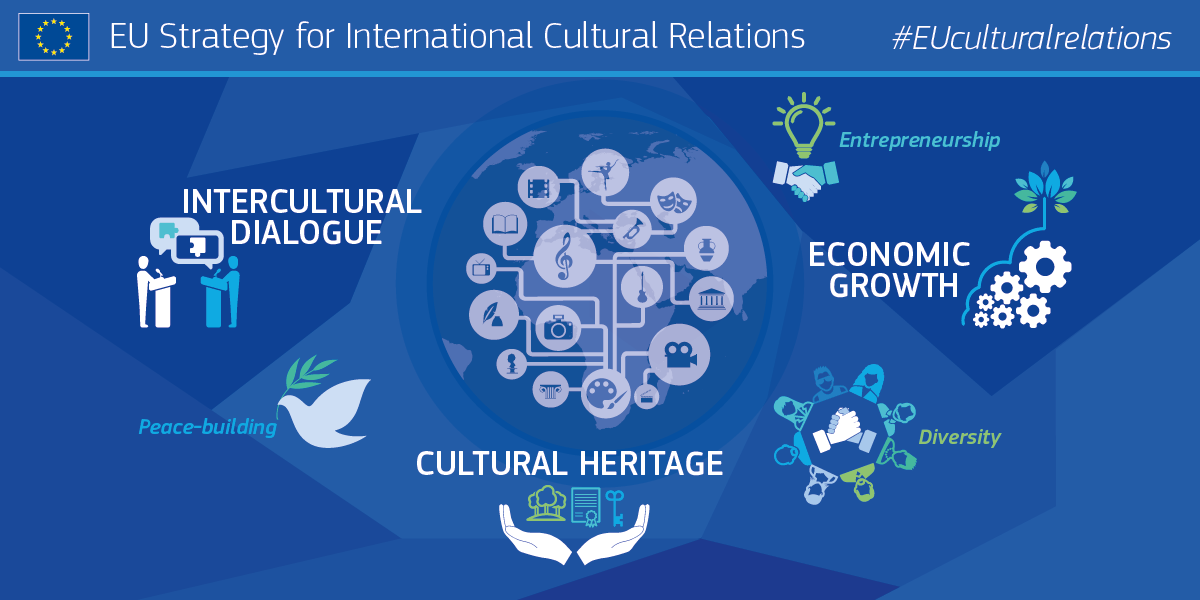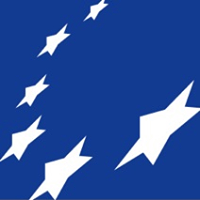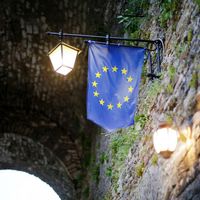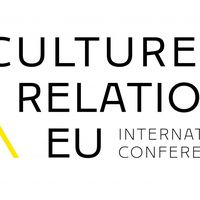CReW - Cultural Relations at Work project launched

CReW (Cultural Relations at Work) is a newly launched EU-financed project led by the University of Siena with EUNIC Global. It intends to foster discussion and reflection on the role of culture in international cultural relations issue through a set of systematic cross fertilization efforts between policy-makers, practitioners and academics.
Over the last two decades, EU member states have re-evaluated the role of culture in the conduct of their foreign policy, thus implementing international cultural relations in more effective and innovative ways. This growing interest is due to several interconnected factors: globalization, a more competitive environment for cultural relations, and the growing ambitions of state- and new non-state actors to conduct independent cultural diplomacy. These developments have been espoused by European institutions as well, whose efforts have culminated in the launching of a strategy for international cultural relations, an expression of which is the joint communication “Towards a EU strategy for international cultural relations” (JOIN (2016) 29 final) However, in this rapidly evolving context, the debate about what cultural diplomacy is and what are its effects is still wide open. No uncontested definition of cultural diplomacy exists so far. This mix of perspectives reflects deep tensions among different strategic interests, historical traditions, and visions of what the role of state- and non-state actors should be in cultural diplomacy.
For this reason, the Cultural Relations at Work (CReW) project intends to foster discussion and reflection on this issue through a set of systematic cross fertilization efforts between policy-makers, practitioners and academics. However, the gap between what researchers do in academia and what diplomats, policy-makers, and practitioners do in their day-to-day work is not easy to fill. On the one hand, academic work tends to approach new fields, such as cultural diplomacy, extending to them traditional tools. When it comes to cultural diplomacy, a recent research study conducted by the University of Siena (UNISI) for the European Union National Institutes for Culture (EUNIC) shows how most of what is thought to be under the label of cultural diplomacy and relations is usually native to international relations, communications, and political science in general. On the other hand, the relative novelty of cultural diplomacy as a field of activity and practice implies the existence of a lot of “practical knowledge” among practitioners and policy-makers operating in the field. This knowledge must be brought to the forefront and systematized.
The CReW project is financed by the Erasmus+ Programme, Jean Monnet Activities (EAC-A03-2016). The project is coordinated by the University of Siena in partnership with EUNIC Global. It consists of three events plus a final conference. The events will take place in Morocco (Rabat - Winter 2018), United Kingdom (London – Fall 2018), and Germany (Stuttgart – Spring 2019). The final conference will take place in Italy (Siena – Summer 2019) in the framework of the EUNIC Siena Cultural Relations Forum.
For each event, participants will be selected among local and non-local practitioners, policy-makers and academics. Each event will consist of three modules: a seminar, a workshop, and a brainstorming session. The seminar will introduce the main issues relevant to the topics, the workshop will discuss the case studies, and the brainstorming session will foster proposals and recommendations on how to make the practices of cultural diplomacy more effective.
The three events will focus each on one of the three work streams of the joint communication Mogherini: supporting culture as an engine for sustainable social and economic development (Morocco); reinforcing cooperation on cultural heritage (The UK); promoting culture and inter-cultural dialogue for peaceful inter-community relations (Germany). The final conference will gather selected attendees and speakers of the previous events.
The expected goals are: to foster dialogue between the academic world, practitioners, and policy-makers; to cross-fertilize the academic work with recent practices and to inform these with the results of the academic research; to improve the quality of professional training for practitioners and policymakers on international cultural relations; to facilitate better access to content and methodologies that might be relevant to a wider audience of academic, policy-makers and practitioners in cultural relations and cultural diplomacy.
Read more about the project and follow events
Similar content
posted on
07 Feb 2017
posted on
10 Apr 2019
posted on
20 Oct 2014
from - to
06 Oct 2010 - 08 Oct 2010
from - to
30 May 2019 - 31 May 2019





